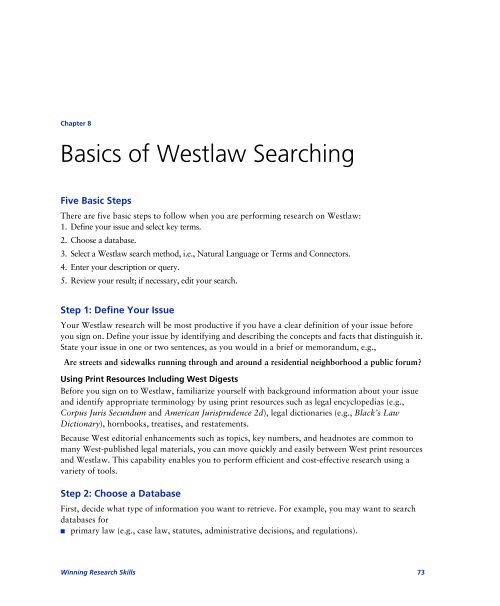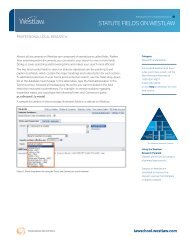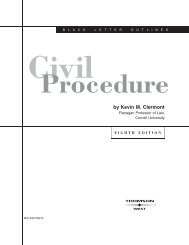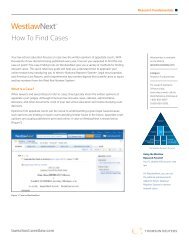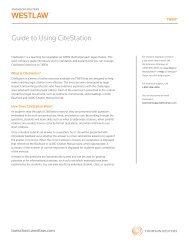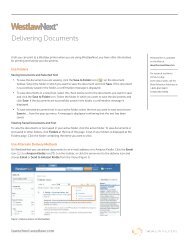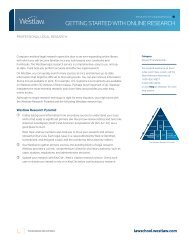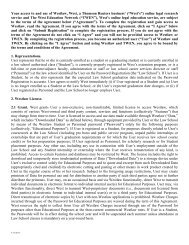Winning Research Skills - Westlaw
Winning Research Skills - Westlaw
Winning Research Skills - Westlaw
Create successful ePaper yourself
Turn your PDF publications into a flip-book with our unique Google optimized e-Paper software.
Chapter 8<br />
Basics of <strong>Westlaw</strong> Searching<br />
Five Basic Steps<br />
There are five basic steps to follow when you are performing research on <strong>Westlaw</strong>:<br />
1. Define your issue and select key terms.<br />
2. Choose a database.<br />
3. Select a <strong>Westlaw</strong> search method, i.e., Natural Language or Terms and Connectors.<br />
4. Enter your description or query.<br />
5. Review your result; if necessary, edit your search.<br />
Step 1: Define Your Issue<br />
Your <strong>Westlaw</strong> research will be most productive if you have a clear definition of your issue before<br />
you sign on. Define your issue by identifying and describing the concepts and facts that distinguish it.<br />
State your issue in one or two sentences, as you would in a brief or memorandum, e.g.,<br />
Are streets and sidewalks running through and around a residential neighborhood a public forum?<br />
Using Print Resources Including West Digests<br />
Before you sign on to <strong>Westlaw</strong>, familiarize yourself with background information about your issue<br />
and identify appropriate terminology by using print resources such as legal encyclopedias (e.g.,<br />
Corpus Juris Secundum and American Jurisprudence 2d), legal dictionaries (e.g., Black’s Law<br />
Dictionary), hornbooks, treatises, and restatements.<br />
Because West editorial enhancements such as topics, key numbers, and headnotes are common to<br />
many West-published legal materials, you can move quickly and easily between West print resources<br />
and <strong>Westlaw</strong>. This capability enables you to perform efficient and cost-effective research using a<br />
variety of tools.<br />
Step 2: Choose a Database<br />
First, decide what type of information you want to retrieve. For example, you may want to search<br />
databases for<br />
■ primary law (e.g., case law, statutes, administrative decisions, and regulations).<br />
<strong>Winning</strong> <strong>Research</strong> <strong>Skills</strong> 73


